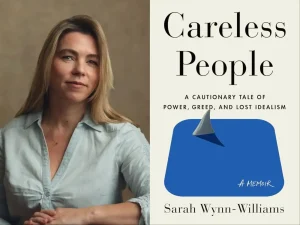MONTREAL — Jewish groups are disappointed by an official decision that graphic political signs accusing Israel of murder posted around Montreal during the campaign do not violate the Canada Elections Act.
The Centre for Israel and Jewish Affairs (CIJA) and B’nai Brith Canada separately lodged complaints with Elections Canada. The ruling was made by the Commissioner of Canada Elections, an independent officer whose duty is to ensure that the law governing elections is complied with.
The complaints concern signs with a photo of the mangled, lifeless body of a child on a beach and the text in French: “Israel murders Palestinian children/Harper applauds/What do the other parties say?”
They were sponsored by BDS-Québec, a committee of the Coalition pour la Justice et la Paix en Palestine. It was registered as a third party with Elections Canada in August, under the name of Bruce Katz, a longtime leader of the anti-Israel group PAJU (Palestinian and Jewish Unity).
Registered third parties have the right to advertise within certain spending limits and funding regulations. Katz said about 100 of the signs were put up, and many are seen in the downtown core. BDS Québec also has a Facebook page illustrated with the sign.
“We are very disappointed by the decision,” said CIJA chief executive officer Shimon Koffler Fogel. “We have reviewed the Canada Elections Act carefully and remain convinced that these signs are in violation of Article 91, because they blatantly propagate false information.
“While the review process was clearly thoughtful, we are disturbed that the commissioner failed to recognize the factual misrepresentation and manipulation at the centre of this campaign. If these signs are legitimate, then what isn’t?”
Article 91 states that, “The Canada Elections Act does not control the content of election advertising except as follows: it prohibits the publication of false statements about a candidate or prospective candidate, in order to affect election results.”
To remove third party signs is a criminal offence.
The signs, which began appearing third week of September, refer to the four Palestinian boys who died in July 2014 while playing soccer on a beach allegedly as a result of an Israeli airstrike on the port of Gaza. BDS-Québec is protesting that Israel closed its investigation after finding no criminal responsibility.
B’nai Brith CEO Michael Mostyn described the signs as not only disturbing, but also anti-Semitic, and strongly condemned their content and tone.
“The fact that this group was allowed to register for official third party status, and continues to be sanctioned by Elections Canada while posting graphic and incendiary materials aimed at a particular ethnic group, demonstrates a fundamental gap in the Canada Elections Act,” said Mostyn.
“We will be bringing this issue forward to the incoming government to address this important area for reform. Election campaigns should explore matters of political interest to all Canadians, but should never target minority groups for hateful incitement.”
According to information on its website, BDS-Québec is supported by 27 groups, including such major unions as the Centrale des syndicats du Québec and the Fédération nationale des enseignantes and des enseignants, the Fédération des femmes du Québec, the student union Association syndicale pour une solidarité étudiante (ASSE), Independent Jewish Voices and the political party Québec solidaire.
One of those listed supporters, Solidarity for Palestinian Human Rights (SPHR), the most active pro-Palestinian campus group, distanced itself from the signs.
Javier Hoyos, an SPHR member and a key campaigner to get a boycott, divestment and sanctions resolution passed last fall by the Concordia Student Union, told the Concordia University student newspaper The Link: “Unfortunately, when people look at that poster, they will automatically assume that SPHR is involved. We are our own independent group. We have nothing to do with BDS-Québec.”
Individual activist Murray Levine launched an online petition urging Prime Minister Stephen Harper to sue BDS-Québec for libel civilly, as a criminal case is not possible, according to legal advice he has received.
“I highly doubt that Canada’s prime minister has ever applauded the deaths of any children, and as such the signs are libellous,” the petition preamble reads. Levine is hoping for 200 signatures and had 172 as of Oct. 13.
Any money awarded to Harper should be donated to one or more children’s hospitals in Canada, Levine said.
Meanwhile, Rabbi Yisroel Bernath is wondering if the BDS signs had anything to do with vandalism at Chabad of NDG, of which he is director.
On the morning of Oct. 11, he discovered that the 12-foot metal menorah in front of the centre on Hingston Avenue had been toppled over and the base broken.
He reported it to police, but there are no suspects at time of writing and the motive is not known.
“I don’t know if there is a connection between the posters and the vandalism, but this type of anti-Israel incitement has been known in the past to lead to anti-Semitism, both locally and around the world,” Rabbi Bernath said.
Rabbi Bernath also runs Chabad at the Loyola campus of Concordia, where the signs have been posted.
“This is very hurtful,” he said. “The menorah is a symbol of light spreading forth to the [Notre-Dame-de-Grâce] area and the entire world. It is a symbol of our Jewish pride, and it feels like this act is challenging that… I guarantee you this symbol will rise again in NDG bigger and stronger than ever.”
Chabad of NDG moved to a former church on Hingston two years ago after many years on Monkland Avenue.
Rabbi Bernath has launched a crowdfunding campaign to raise $3,500 to install surveillance cameras outside the centre. He said the centre has had several break-ins with robbery since relocating in the new premises.






